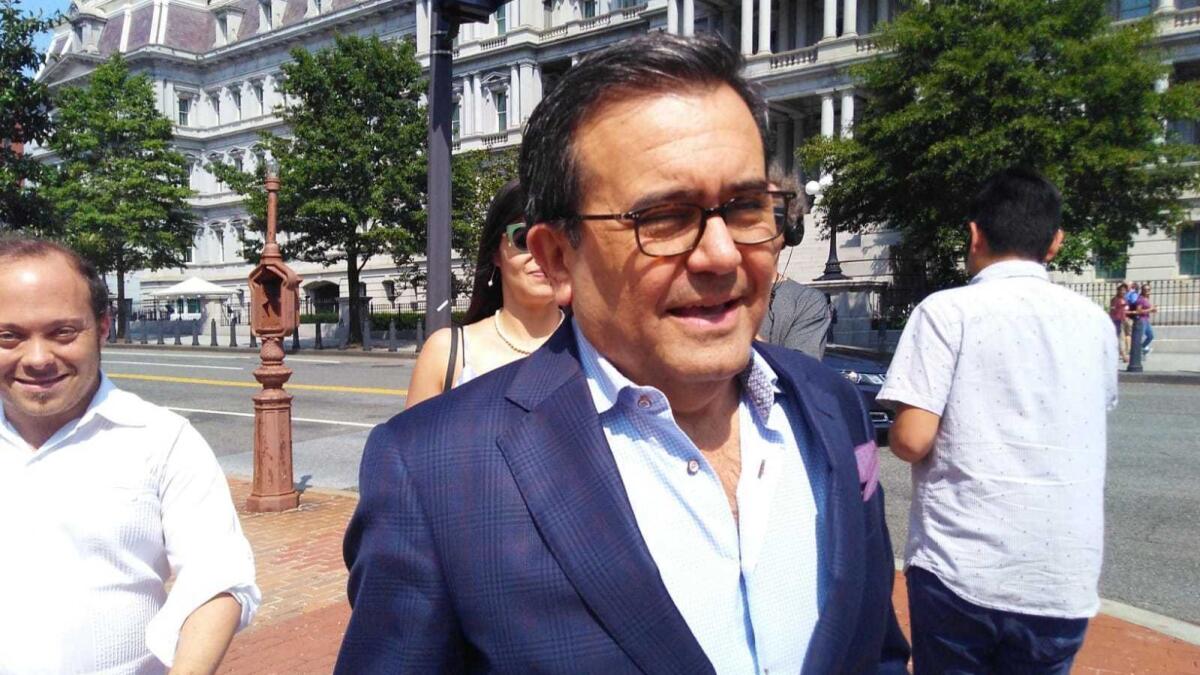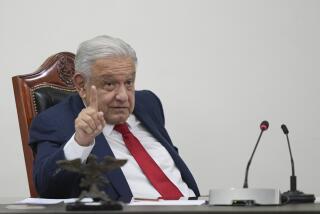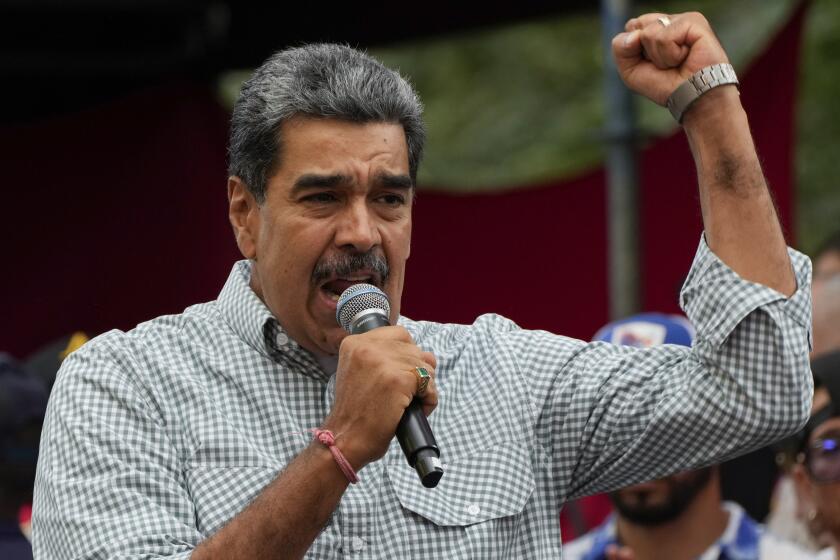U.S. and Mexico said to be close on revamping NAFTA

U.S. and Mexican negotiators were closing in on an agreement for revamped terms of the North American Free Trade Agreement, according to officials in both countries.
Reports circulating in the Mexican media indicate that an accord between the United States and Mexico could be reached as soon as Monday, though there was no official confirmation from either nation. Negotiations were continuing Sunday in Washington.
Mexico’s chief negotiator, Ildefonso Guajardo, the country’s economy secretary, was quoted from Washington on Sunday saying that U.S.-Mexico talks were “in the final hours.”
A day earlier, President Trump declared in a Twitter message that a resolution was near.
“A big trade agreement with Mexico could be happening soon!” Trump wrote on Saturday.
An accord would open the way for Canada to reenter the talks on the three-nation pact, which governs more than $1 trillion in annual trade. NAFTA eliminates most trade barriers among the nations.
For weeks, U.S. and Mexican negotiators have been working to iron out complex bilateral trade concerns while Canada awaits the results and the opportunity to return to the negotiating table.
Trump has suggested that Canada was sidelined because of what he labeled that nation’s high tariffs and trade barriers.
But Canadian Foreign Affairs Minister Chrystia Freeland said last week that Ottawa backed the idea of Washington and Mexico City hammering out differences before Canada resumed its participation.
Guajardo, the top Mexican negotiator, told reporters in Washington that it would take at least a week to finalize the deal once Canada reenters the talks.
U.S. and Mexican negotiators were discussing a number of thorny issues, including Washington’s insistence on greater U.S. content in auto production and how to resolve trade disputes within the confines of a new deal. Mexico, with its relatively low-wage labor force, is a major production site for many U.S. manufacturers, especially automobile companies.
Both Mexican and Canadian officials have also balked at a U.S. proposal for a “sunset” provision that could end the trade pact after five years, arguing that such a clause could send the wrong message to investors seeking long-term commitments.
Talks to construct a revised NAFTA deal have been going on for more than a year. They began at the insistence of Trump, who has repeatedly branded NAFTA a job-killing “disaster” for U.S. workers and industry. Overhauling the agreement was a key promise of his election campaign.
Trump has threatened to walk out of the pact in the absence of an agreement that is more favorable toward U.S. interests.
However, representatives of U.S. agricultural, manufacturing and other sectors have cautioned the White House that walking away could be a blow for the U.S. economy.
Trump has softened his tone recently both about the trade accord and about Mexico, a nation that he argues has stolen U.S. jobs and done little to stop illegal immigration and drug-trafficking to the U.S. Officials in both the U.S. and Mexico have said they are keen to reset the fractious binational tone between the neighbors that has marred relations since Trump took office.
“Our relationship with Mexico is getting closer by the hour,” Trump said Saturday in his Twitter message. “Some really good people within both the old and new government, and all working closely together.”
Mexican officials are seeking to have a new deal in place by Dec. 1, when President-elect Andres Manuel Lopez Obrador takes office.
NAFTA has become a cornerstone of the Mexican economy since it went into effect Jan. 1, 1994. Almost 80% of the nation’s exports are destined for the United States and tens of thousands of Mexican jobs are linked to the free-trade pact. NAFTA’s prospective collapse would be a major blow for Mexico’s already sluggish economy.
Lopez Obrador, a leftist populist who was elected in a landslide vote July 1, said on Friday that the NAFTA talks were proceeding well.
“The negotiations are headed down a good road,” he said. “Like they say in baseball, ‘This isn’t over until it’s over.’”
Cecilia Sanchez in The Times’ Mexico City bureau contributed to this article.
Twitter: @PmcdonnellLAT
More to Read
Sign up for Essential California
The most important California stories and recommendations in your inbox every morning.
You may occasionally receive promotional content from the Los Angeles Times.










